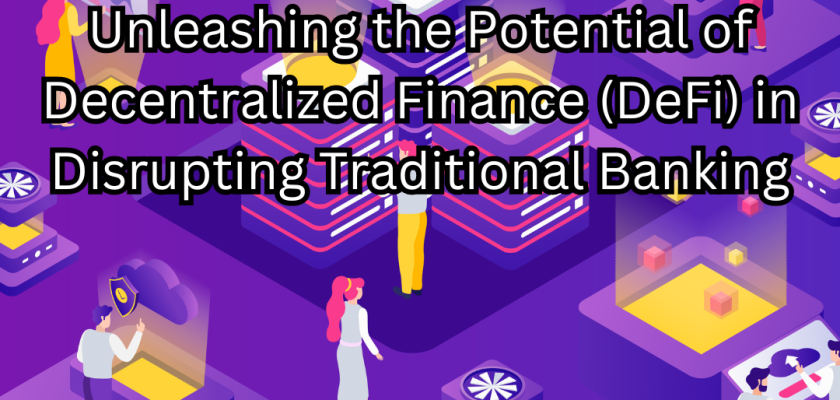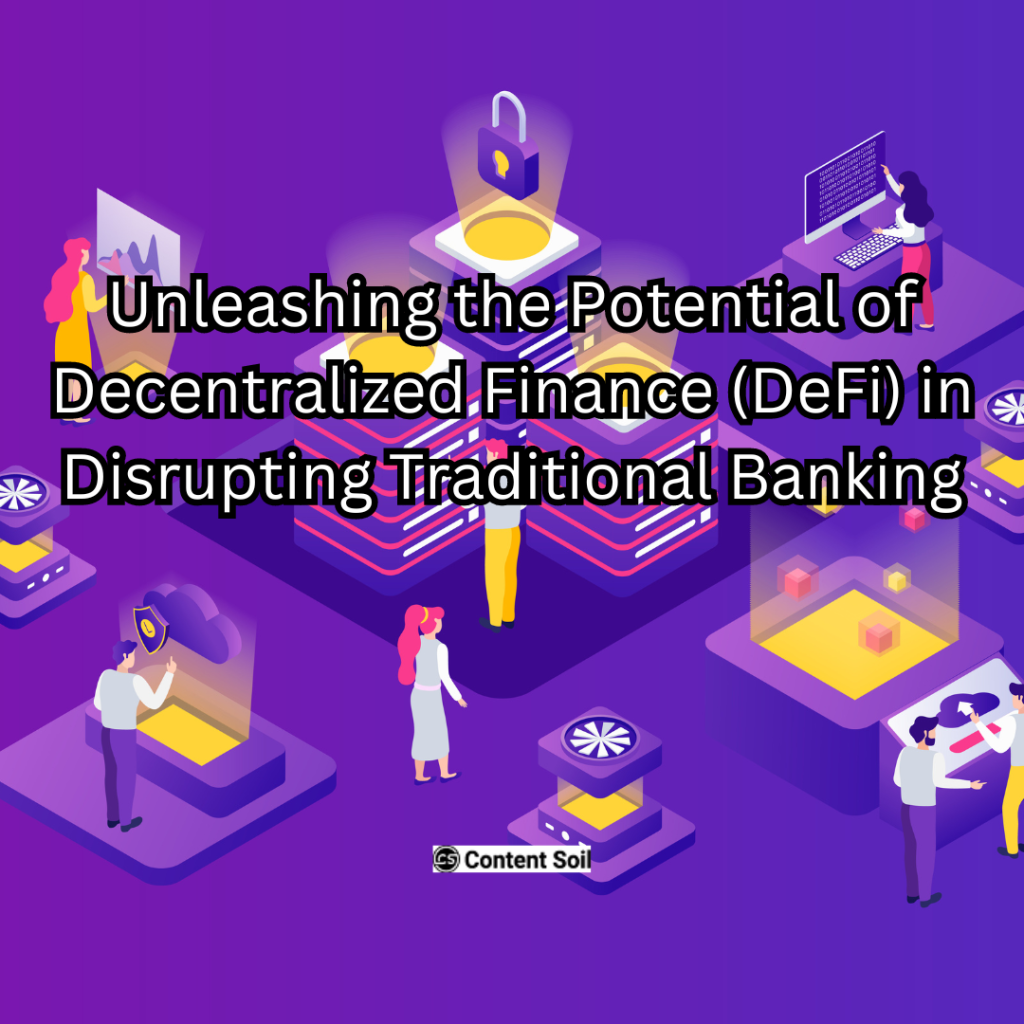Introduction:
In the digital era, the financial landscape is experiencing a profound transformation, driven by the emergence of decentralized finance (DeFi). DeFi, built on blockchain technology, represents a paradigm shift away from traditional banking systems, offering a more inclusive, transparent, and efficient alternative. This essay explores the potential of DeFi in disrupting traditional banking, analyzing its key features, benefits, challenges, and future outlook.
Democratizing Access to Financial Services DeFi platforms enable With the internet, people can access various financial services such as lending, borrowing, trading, and investing without intermediaries like banks. This democratization of access to financial services has the potential to empower millions of unbanked and underbanked individuals worldwide, fostering greater financial inclusion.
Eliminating Intermediaries and Lowering Costs By leveraging blockchain technology and smart contracts, DeFi eliminates the need for traditional intermediaries, such as banks and clearinghouses, thereby reducing transaction costs and fees associated with financial services. This disintermediation not only makes financial services more affordable but also enhances efficiency and transparency in transactions.
Unlocking Global Liquidity Pools DeFi protocols facilitate the creation of decentralized liquidity pools, where users can contribute their assets to provide liquidity for various financial activities, such as lending and trading. These global liquidity pools unlock previously untapped capital, enabling more efficient capital allocation and promoting liquidity across different markets and asset classes.
Enhancing Financial Privacy and Security Unlike traditional banking systems, which rely on centralized databases vulnerable to cyber-attacks and data breaches, DeFi operates on decentralized networks secured by cryptographic algorithms. This enhances financial privacy and security, as users retain control over their assets and personal information without relying on third-party custodians.
Enabling Programmable Money and Automated Transactions Smart contracts, the backbone of DeFi applications, enable programmable money and automate complex financial transactions based on predefined conditions. This automation reduces the need for manual intervention, minimizes the risk of human error, and enables the creation of innovative financial products and services tailored to specific user needs.
Promoting Financial Innovation and Experimentation The open-source nature of DeFi allows developers to build and deploy financial applications and protocols without permission, fostering a culture of innovation and experimentation. This rapid iteration cycle enables the continuous evolution of DeFi, leading to the emergence of new decentralized solutions that challenge the status quo of traditional banking.
Addressing Global Economic Challenges DeFi has the potential to address some of the systemic inefficiencies and inequalities present in traditional banking systems. By providing more equitable access to financial services, promoting transparent and auditable transactions, and facilitating cross-border remittances and trade, DeFi can contribute to poverty reduction, economic empowerment, and sustainable development globally.
Overcoming Regulatory and Compliance Hurdles Despite its transformative potential, DeFi faces regulatory and compliance challenges, as governments and regulatory bodies seek to adapt existing frameworks to the decentralized nature of these platforms. Achieving regulatory compliance while preserving the core principles of decentralization and financial sovereignty remains a critical hurdle for the widespread adoption of DeFi.
Navigating Scalability and User Experience Constraints Scalability and user experience remain significant challenges for DeFi, as blockchain networks struggle to handle large transaction volumes efficiently, resulting in network congestion and high gas fees. Addressing these scalability issues and improving the user experience are essential to unlocking the full potential of DeFi and attracting mainstream users.
Opportunities and Risks Despite the challenges ahead, the future of DeFi looks promising, with continued innovation, adoption, and integration with traditional financial systems. However, as DeFi matures, it also faces risks, including regulatory crackdowns, security vulnerabilities, and systemic risks associated with complex financial products and protocols. Balancing innovation with risk management will be crucial in shaping the future trajectory of DeFi.
Conclusion:
Decentralized finance (DeFi) stands poised to disrupt traditional banking systems by democratizing access, reducing costs, enhancing security, promoting innovation, and addressing global economic challenges. However, regulatory hurdles, scalability constraints, and user experience improvements remain significant barriers to widespread adoption. Nevertheless, with continued innovation and integration with traditional finance, DeFi holds the promise of reshaping the financial landscape, fostering greater inclusion, transparency, and efficiency. Balancing innovation with risk management will be essential in navigating the path forward towards a more decentralized and equitable financial future.


